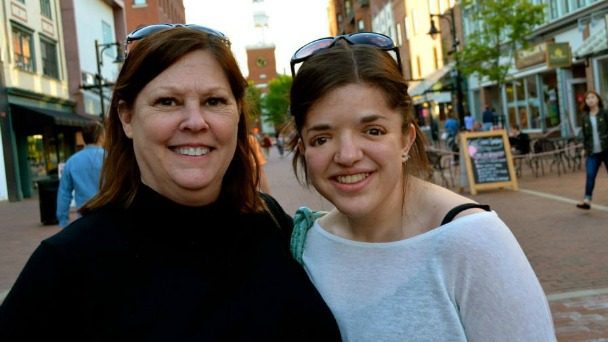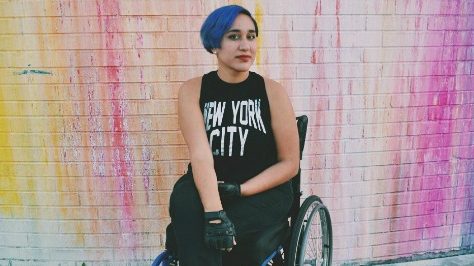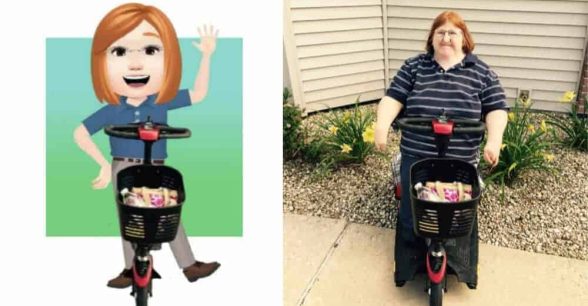When Emotional Support Becomes Unintended Gaslighting
Gaslighting is a psychological term used to describe a type of emotional and psychological abuse. Rooted in manipulation, it refers to someone’s attempt to alter someone else’s reality. The term stems from the 1938 stage play and 1944 film, Gaslight – a story in which a husband systematically convinces his wife she’s mentally unstable. In the film, the woman begins to question her own thoughts, feelings, instincts, and even her sanity. Gaslighting doesn’t only affect those in marital relationships, though. This type of abuse can affect anyone. In fact, people with physical differences are often victims of gaslighting by those intending to offer comfort and support. As someone with Crouzon syndrome, a craniofacial condition that affects the shape and growth of my head, I’ve experienced this firsthand.
At the very heart of gaslighting is the fact that individuals are often shamed for speaking up, with the abuse often manifesting itself in comments like:
“They’re not pointing at you. They’re pointing at what’s behind you.”
“Don’t be so sensitive, they’re only staring at you because you’re so pretty.”
“They didn’t mean it like that. You always take things so personally.”
Sadly, this type of treatment is typical for many living with disfigurement.
Because of my appearance, I spent much of my adolescence struggling to accept the appearance of my face. Some days, I didn’t want to be seen by anyone, because being seen too often meant being judged. In many ways, I spent my life at the mercy of strangers. To make matters worse, my loved ones didn’t know how to help, and in an effort to comfort me, would often deny prejudicial occurrences. This never made me feel better, though. It made me feel misunderstood.
When I was in public – shopping and running errands with my mother – strangers would often stare and make rude comments about my face. I was always left feeling small and insignificant, wondering why I was the only one who saw how inappropriate this kind of treatment was.
“Can we go?” I’d ask my mother. “People are being rude and I’m not in the mood.” Sometimes I would deliberately raise my voice, speaking loud enough for the onlookers to hear me. I thought maybe if I called them out on their behavior, they’d understand their actions were hurtful. But they rarely got the message.
“They’re just admiring how cute you look today,” my mother would say with a smile, as she examined items on a shelf.
I’d almost always roll my eyes, because my mother and I both knew why I was being stared at, and being cute had nothing to do with it.
My mother wasn’t the only person to respond to these situations in this manner. Friends and family members also chalked up my experiences to my sensitivity and assured me that the teasing and mocking wasn’t even occurring, that it was all in my head. Though I knew they had the best of intentions, that they were simply trying to spare my feelings, it hurt. But that’s what gaslighting is: It’s dismissing the victim’s questions or feelings. It’s denying events occurred or pretending to forget the way something happened, belittling the situation entirely.
Much of this often unintentional abuse stems from the fact that being the target of public bullying or harassment, or witnessing someone else experience it, can be uncomfortable and difficult to navigate. But if you’re ever faced with the task of comforting a friend or loved one, do your best to just listen. When it comes to offering support, don’t deny the victim’s feelings. Instead, ask what they need and go from there.
As an adult, my mother and I talk openly about the situations we experienced together. She apologizes, noticing the ways in which she inadvertently minimized my feelings and denied my experiences. She simply didn’t know how to respond. As a mother, it hurt her to see her child upset, so she handled the situation the best way she knew how.
These days, when my mother and I are out shopping together, I use a code phrase to indicate my discomfort. “I feel like a celebrity,” I’ll tell her, when strangers are staring too intensely, and I feel like crawling out of my skin. My mother, ready to get me out of any situation, immediately stops what she’s doing and asks if I want to leave. Sometimes, I take her up on it. Other times, we just stare back at the onlookers together – our own little way of taking the power back.
About Rooted In Rights
Rooted in Rights exists to amplify the perspectives of the disability community. Blog posts and storyteller videos that we publish and content we re-share on social media do not necessarily reflect the opinions or values of Rooted in Rights nor indicate an endorsement of a program or service by Rooted in Rights. We respect and aim to reflect the diversity of opinions and experiences of the disability community. Rooted in Rights seeks to highlight discussions, not direct them. Learn more about Rooted In Rights




Thanks for explaining this Ariel.
It is important that we learn to recognize both that we may be doing it and that it is being done to us- intentional or not. Understanding what’s happening and why we feel uncomfortable in what seems to be and is being called “support” and being able to name and address it, is one of the most important skills we can master. I kid you not I was just in this situation today before I read your article. Everything in me was saying something is very wrong here, but I couldn’t say what it was. I read your article and sent it to a group where it happened. I feel a lot better that I could put a name to it.